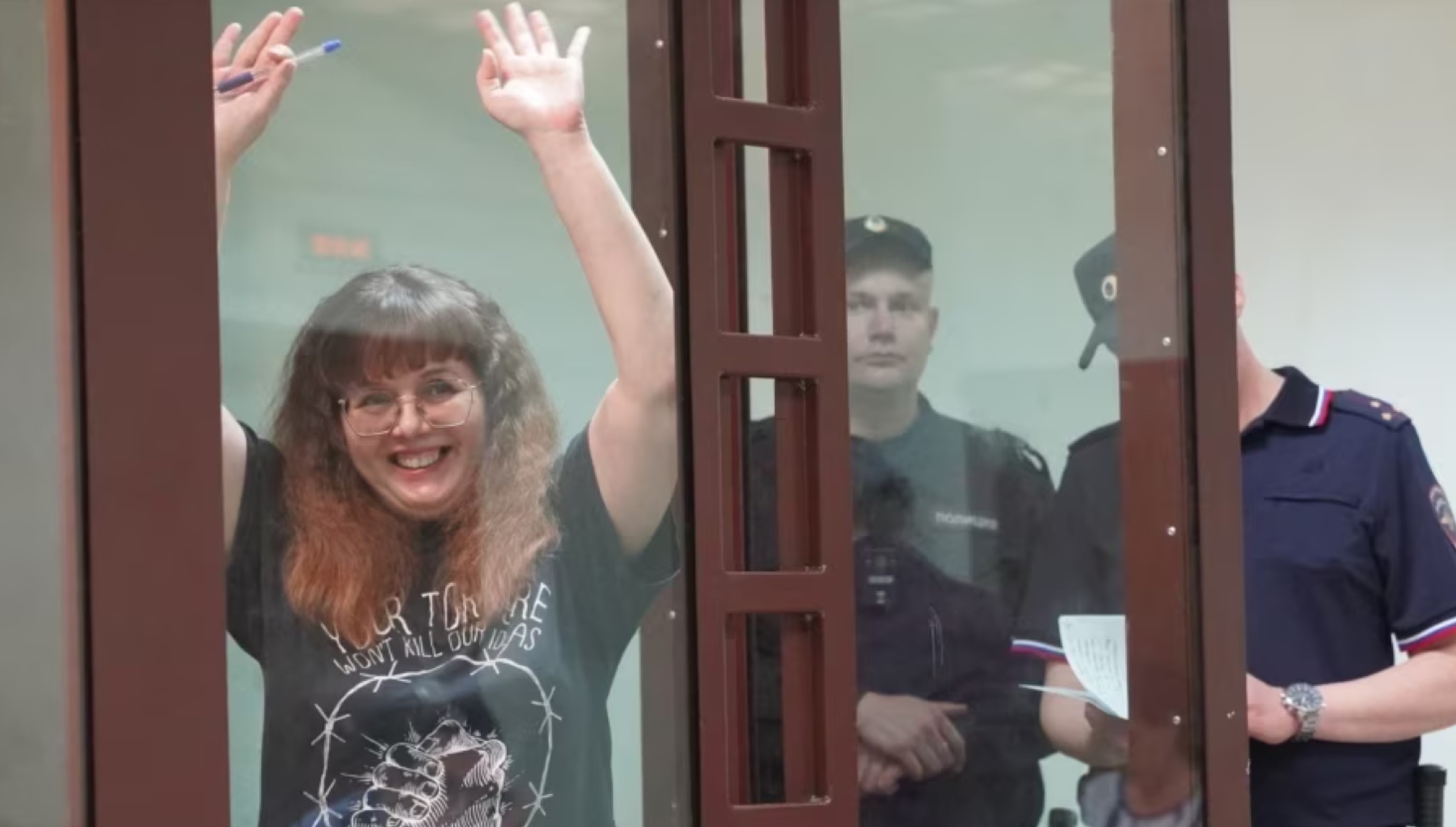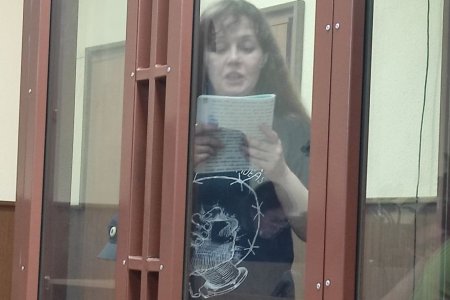
A prosecutor in St Petersburg has demanded a 7-year sentence against Olga Smirnova who has been in detention since 5 May 2022 for her opposition to Russia’s full-scale invasion of Ukraine. The 54-year-old architect, artist and civic activist from St. Petersburg is accused of ‘spreading fakes’ on social media through eight entirely truthful posts about Russia’s war of aggression against Ukraine.
Smirnova is charged under Article 207.3 § 2 b and d of Russia’s criminal code. This envisages real prison sentences for what is called the ‘public circulation of knowingly false information about the Russian Federation armed forces’. It is one of two criminal charges rushed into law within ten days of Russia’s full-scale invasion in order to silence protest. Information is claimed to be ‘fake’ if it does not correspond with the official position of the Russian defence ministry. The latter, together with the Kremlin, denies Russia’s relentless bombing of civilian targets, the atrocities committed in Bucha and other cities while under occupation and countless other documented war crimes.
According to Olga’s colleagues from the Peaceful Resistance Initiative, she began actively organizing and taking part in protests after Russia’s invasion of Crimea in 2014. She took part in single-person pickets in support of Russia’s ever-mounting number of Crimean Tatar and other Ukrainian political prisoners. For such entirely peaceful protest, she was constantly harassed and faced numerous administrative detentions, short periods in jail, fines, etc. Even before Russia’s full-scale invasion, it was clear that the regime was ramping up its persecution, and planning criminal charges, specifically over her defence of Crimean Tatar political prisoners. As reported, OMON riot police burst into her apartment on 20 October 2021 and carried out a search, removing computer equipment, hard drives, memory cards, as well as leaflets, a flag with the Ukrainian tryzub and the flag of the Mejlis, or self-governing body, of the Crimean Tatar people. It became clear that she was facing prosecution under Article 205.2 of Russia’s criminal code (so-called ‘public calls to carry out terrorist activities; public justification of terrorism or propaganda of terrorism’.
There was no ‘terrorism’ for Olga to be ‘justifying’. The Crimean Tatars, mostly civic activists and journalists, whose release she was demanding, are recognized political prisoners and Russia’s use of ‘terrorism’ legislation against them has received international condemnation. Instead of complying with international law, Russia has increased its persecution of members of the Crimean Solidarity human rights movement in occupied Crimea. In Russia, the charges against Smirnova were a clear attempt to terrorize courageous citizens protesting over such persecution into silence.
After Russia’s full-scale invasion of Ukraine, Smirnova posted a daily ‘War Chronicle’, organized; and held several anti-war protests; and openly expressed her opposition to the invasion. She and colleagues from Peaceful Resistance also maintained a page on VKontakte which had around 12 thousand subscribers before it was officially blocked on Russian-controlled territory on 21 March 2022.
On 5 May 2022, the so-called Centre for countering extremism and Investigation Committee carried out searches of the homes of five members of Peaceful Resistance: Olga Smirnova; Asan Mumdzhi; Vladimir Shipitsyn; Tatyana Sichkaryova and Ilya Tkachenko.
All five were taken for interrogation, however Olga was the only person to be detained and charged under Article 207.3 § 2 (circulating ‘fakes’ about Russia’s armed forces)). The investigator who applied to the Kirovsky district court for her to be remanded in custody claimed that she needed to be in custody due to the ‘seriousness’ of the charges and the danger to the public of her actions (i.e. the eight posts about the war and about the anti-war protests). Olga’s lawyer, Maria Zyrianova was forced to sign a non-disclosure commitment during the preliminary investigation.
According to the Telegram channel ‘Free Olga Smirnova’, the activist is also facing another criminal charge over a protest public burning of the ‘Z’ which the current regime has made the symbol of its war against Ukraine. The charge is under Article 243 of Russia’s criminal code, with the investigators claiming that this was ‘an act of destruction of objects of cultural heritage (monuments of history and culture) of the peoples of the Russian Federation). This absurd claim was separated from the ‘fakes’ charges, with no information available as to what, if anything, is happening with it.
Olga’s ‘trial’ on the ‘fake’ allegations has been taking place at the same Kirovsky district court in St. Petersburg which has been authorizing her detention since early May 2022. Prosecutor Burlakov began the final court debate on 8 August 2023 by claiming that Smirnova’s ‘guilt’ had been proven and demanding a 7-year sentence and ban on the activist administering Internet sites for four years. Russian courts have been churning out these convictions since soon after the full-scale invasion of Ukraine, and the next hearing, on 14 August, could include Olga’s final address and even the verdict.



